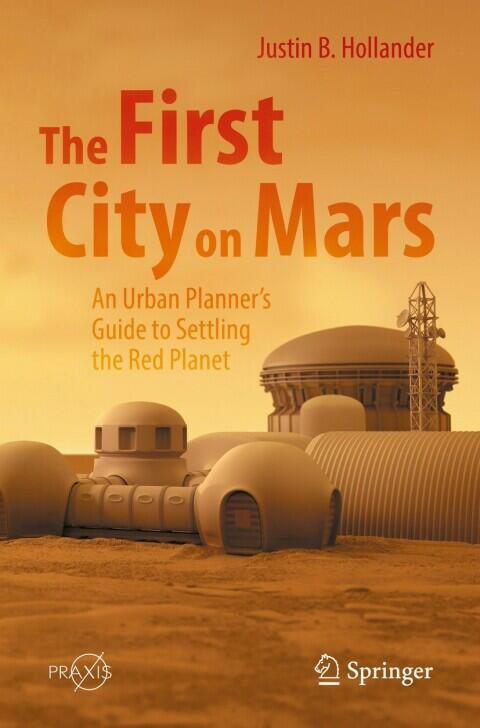
The First City on Mars: An Urban Planner’s Guide to Settling the Red Planet
아직 평점이 없습니다
Science & Technology
History
형식
킨들
페이지
429
언어
독일어
출판됨
Jan 1, 2023
출판사
Springer
판
3
ISBN-10
3031075285
ISBN-13
9783031075285
설명
In an intriguing exploration of the possibilities that interplanetary colonization presents, Justin B. Hollander delves into the visionary concept of establishing urban life on the Red Planet. Throughout this insightful narrative, the author intertwines fields such as urban planning, architecture, and environmental science, inspiring readers to imagine a future where humanity expands its horizon beyond Earth.
Hollander analyzes the unique challenges and potential solutions for creating sustainable habitats under Martian conditions. His perspective sheds light on the necessity of innovative infrastructure designs, resource management, and social systems that must be implemented if humans are to thrive in such an extraterrestrial landscape. Through a rigorous examination of past space exploration endeavors and contemporary research, he crafts a roadmap for transforming the seemingly impossible into reality.
Engaging with the historical context of urban development on Earth, the work encourages us to draw parallels and learn from our past as we venture into this new frontier. The author emphasizes collaboration, adaptability, and resilience as crucial traits for Martian settlers, urging a reimagination of community living in the vastness of space.
Ultimately, this book invites readers to envision a groundbreaking era where humans not only visit Mars but lay down roots to cultivate a thriving, interconnected society. Hollander's blend of scientific inquiry and imaginative foresight presents a compelling argument for why our next chapter as a species may very well be written on the surface of another planet.
Hollander analyzes the unique challenges and potential solutions for creating sustainable habitats under Martian conditions. His perspective sheds light on the necessity of innovative infrastructure designs, resource management, and social systems that must be implemented if humans are to thrive in such an extraterrestrial landscape. Through a rigorous examination of past space exploration endeavors and contemporary research, he crafts a roadmap for transforming the seemingly impossible into reality.
Engaging with the historical context of urban development on Earth, the work encourages us to draw parallels and learn from our past as we venture into this new frontier. The author emphasizes collaboration, adaptability, and resilience as crucial traits for Martian settlers, urging a reimagination of community living in the vastness of space.
Ultimately, this book invites readers to envision a groundbreaking era where humans not only visit Mars but lay down roots to cultivate a thriving, interconnected society. Hollander's blend of scientific inquiry and imaginative foresight presents a compelling argument for why our next chapter as a species may very well be written on the surface of another planet.



















